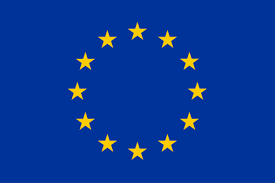Intercropping for boosting organic farming in EU – ReMIX policy brief

The European Green Deal addresses the challenges of a fair sustainable food system. To realise the EU Green Deal, the Farm to Fork Strategy sets goals to significantly reduce the use and risk of chemical pesticides and fertilisers as well as increase the agricultural land under organic farming to at least 25% by 2030.
Intercropping can help reaching the 25% target of organic agricultural land
Species mixtures, also known as intercrops, can enhance and fimprove the control of pests, diseases, and weeds, while increasing crop productivity and resilience to biotic and abiotic stresses – including those exacerbated by climate change. Intercropping is still a minor practice, but areas cultivated with cereal-legumes mixtures have steadily increased for 10 years, mainly in organic farming. Thanks to these positive effects, Intercropping is an important element of Europe’s agroecological transition.
ReMIX: Redesigning European cropping systems based on species mixtures
For the past four years, scientists, experts and farmers of the Horizon 2020 project ReMIX worked hard to design productive, diversified, resilient and environmentally friendly cropping systems that are less dependent on external inputs. ReMIX showed that intercropping is a promising solution to overcome many of the limitations in organic arable cropping.
Intercropping offers following benefits for organic farming:
- Increasing and stabilising yields for organic arable crops,
- Improving the protein autonomy of organic farms, and
- Saving worktime and inputs.
ReMIX recommendations: “Intercropping must be a pillar of the Farm to Fork Strategy”
To boost the adoption of intercropping by a larger number of farmers and contribute to reaching the Farm to Fork targets, policy and financial support is needed. In particular:
- European farm subsidies of the Common Agriculture Policy (CAP) should favour intercropping in organic farming while the contradictions in the rules and administrative barriers should be resolved;
- Public authorities need to support the development of value chains for intercropped products and new markets;
- Public authorities should support breeding programmes for intercropping and provide advice on suitable varieties; and
- Public authorities should support participatory research capitalizing on the know-how of farmers and allowing them to take ownership of new practices.
You can read the full policy brief “Intercropping for boosting organic farming in Europe” in our website library.
Make sure to follow @OrganicsEurope on Facebook, Twitter and LinkedIn to stay tuned about the latest updates.
The Horizon 2020 project ReMIX exploits the benefits of species mixtures to design more diversified and resilient agroecological arable cropping systems. IFOAM Organics Europe is a project partner representing the European organic movement and ensuring knowledge transfer and dissemination towards stakeholders and policy-makers.


